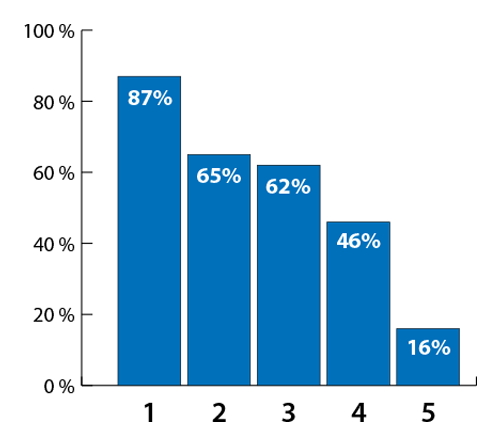


Browser games are games that can be played with a standard browser, the best known are Firefox, Google Chrome, Internet Explorer/Edge, Opera and Safari, and Internet access from anywhere and for a wide range of devices. The operating system plays a minor role, as does the size of the device. So you can play a browser game both from your home PC, which is firmly anchored in its place, and from a mobile smartphone on the move.
This makes browser games not only playable for a wide range of people worldwide, but also allows small developers, such as the table tennis manager, to develop platform-independent games at low cost. In addition, you are not dependent on large distribution platforms such as Steam and can market yourself freely on the Web.
Unfortunately the browser games have already passed their heyday and have suffered a severe image loss, but this was mainly caused by pay-to-win systems, which have earned large developer studios a lot of money. Small developers, some of whom offered completely free games, were unjustly discredited, especially when you consider that today's trend in installable games is also towards free games with optional paid content.
Gameswirtschaft.de, for example, reports that sales in 2018 exploded to 4.4 billion euros (as of 28 March 2019).
Distribution of games sales in 2018
Quelle: Gameswirtschaft
So why is it that browser games are being pushed to the limit when not only browser games like "Fortnite", "Clash Royale" or "Forge of Empires" are cashing in on this concept, but also "full-price titles" like Fifa 2020?
Free-to-play is the name of the concept that was copied from browser games and is now increasingly being used in all areas of the games industry.
More than half of the German games turnover in 2018 was generated by in-game purchases alone. Of every euro earned with games software in Germany, 55 cents are accounted for by in-game purchases.
They also suffer from another circumstance: they lag behind the "normal" games in terms of graphics, acoustics and operation, a circumstance that doesn't have to be like a game like Mars Tomorrow shows. Unfortunately, many developers don't dare to play browser games because another industry has outstripped them: Mobile apps.
Anyone who wants to program a so-called casual game these days will probably try a mobile game, because smartphones have long since outstripped stationary computers. Here are a few statistics:
Share of Internet users by end device in Germany in the 1st quarter of 2018

Quelle: statista
It is quite clear where the trend will go further, away from desktop PCs towards mobile devices, but there is one positive fact for young developers: The platform of Android (Google Play) can be used completely free of charge for the distribution of your own game. The equivalent of iOS requires a small annual contribution of currently 99 euros, which is affordable.
However, a drop of bitterness is also emerging here: The true flood of new apps makes it difficult to be noticed. If you want to successfully launch your own app on the market, you will be lost in the masses and it will be difficult to assert yourself. So if you don't have outrageous luck or an absolutely ingenious idea, it will be difficult to be successful without paid marketing.
Probably not, but the big game developers still make a good living from it, even though some titles have been discontinued and the staff has been evaporated.
Already in 2011 Gameforge laid off 100 employees and in 2012 Bigpoint announced 120 layoffs. While Goodgame was able to post a profit of 24.4 million Euro in 2015, by the end of 2016 there was a loss of 10 million Euro and the company was sold to Stillfront. Several waves of layoffs followed.
Here is a small list of the browser games that were discontinued:
Nevertheless, browser games are by no means extinct and one or the other developer is trying out new techniques, such as HTML5, to create more sophisticated and more beautiful concepts that could still be successful. Diversity has suffered a lot, small developers hardly exist anymore and forums are experiencing a strong loss of members. Fortunately, there are still great blogs that report about browser games, such as WebGamers.
If you want to play a classic and future-proof browser game of a small developer, which already exists for several years, is mature, gets regular updates, allows game depth with little time expenditure, has a helpful community and allows direct contact to the developer (me) in the forum, then you are in good hands with the table tennis manager!
Play the Table Tennis Manager for free now:
The Table Tennis Manager is a browser game, which has been online since 2012, but has been developed continuously since then. The game is played by more than 1,000 players, similar to an MMO, i.e. it is a multiplayer game where many players meet each other, who can exchange information either via the internal mail system of the game or via the forum.
The players are transferred to a sports manager and have to set up and train their team and make it future-proof through new youth players. Thereby they meet computer opponents in the lower leagues until they manage to advance to the upper leagues. There it becomes more demanding to win the championship.
The game has a high depth of play and requires a balanced tactic, because you have to be able to compete there not only athletically but also economically. To achieve this, the right sponsors have to be chosen and the hall should be expanded gradually, according to the demands of the spectators.
Every year there are updates to integrate new features, simplify the operation or fix bugs. I try to do justice to the criticism and the wishes of the players and the community has helped to build the game.